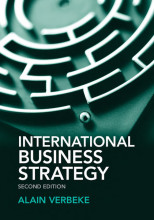Summary: Academic Competences
- This + 400k other summaries
- A unique study and practice tool
- Never study anything twice again
- Get the grades you hope for
- 100% sure, 100% understanding
Read the summary and the most important questions on Academic competences
-
1 Writing a quantitatve research paper NENTY
This is a preview. There are 1 more flashcards available for chapter 1
Show more cards here -
What does the paper of H. Johnsen Nenty highligth?
The cyclical nature of research whereby a thesis starts with theory, moves to numerical and technical knowledge, and ends with theory -
Where is the article of H. Johnsen Nenty based uppon?
Based on extensive teaching and supervising experience, aims to give guidance for writing a thesis. -
What are the three basic purposes of theory in a research study according to Hair and his colleagues?
- The
provision of aconceptual framework forresearch study Serving as a vehicle forincorporating priorknowledge - Linking
research to the larger body ofknowledge in the area of the problem
- The
-
What is a research process?
A process through which theories are validated, refined, or invalidated -
What are important elements wrt to the introduction according to Nenty?
- Describe the problem clearly
- Illustrate and explain the concepts, and their relationships
- Involve and capture the attention of your stakeholders
- Aim for writing a thesis should be to make a significant contribution to knowledge
- A research question that can be answerd with yes or no is per definition a bad research question
- Describe the problem clearly
-
What are the key insight of the article of Nenty?
- Hypothesis generally indicates the effect of the independent variable on the dependent variable
- Speculation ≠ hypothesis
- Sample ≠ population
- Choices or preferences for one method in lieu of another must be justified
- Instrumentation refers to tools or means by which researchers (attempt to) measure variables of interest)
- There is a difference between reliability and validity
- Ethical considerations are important, also at TiU
- Conclusion ≠ Discussion
- Hypothesis generally indicates the effect of the independent variable on the dependent variable
-
What is a conclusion?
Conclusion is based on the findings of the study and summarize your thought and presents your last words on the problem and the significance of the findings. -
What are the two purposes of a conclusions according to Morley?
- To summarize and bring together the main area coverd in the report
- Give a final comment or judgement of the report
- To summarize and bring together the main area coverd in the report
-
What is a discussion?
Discussion is a means ofpresenting andanalysing theconvergence ordivergence of ideas from thefindings of your study:- Findings from the
literature reviewed - Findings from other
theories thatunderlie theproblem underconsideration
--> Mainly anattempt toanswer the question WHY and HOW COME - Findings from the
-
2 Qualitative research RYNES
This is a preview. There are 13 more flashcards available for chapter 2
Show more cards here -
What is the difference between quantitative and qualitative research?
- Quantitative research coeds, counts, and quantifies phenomena in its effort to meaningfully represent concepts
- Qulitaitve research has an inherently literary adn humansitic focus, whereas quantitative research is grounden in mathematical and statistical knowledge
- Higher grades + faster learning
- Never study anything twice
- 100% sure, 100% understanding
Topics related to Summary: Academic Competences
-
Qualitative research RYNES
-
What theory is not SUTTON AND STAW
-
Making theory contributions in strategic management MAKADOK, BURTON AND BARNEY
-
The interplay between theory and method Van Maanen, Sørensen and Mitchell
-
Methodological fit in management field research EDMONDSON ADN MCMANUS
-
Reasoning in organization science MANTERE AND KETOKIVI
-
Construct clarity in theories of management and organization SUDDABY
-
Analyzing the past to prepare for the future WEBSTER AND WATSON
-
Generating research questions through problematization ALVESSON AND SANDBERG































